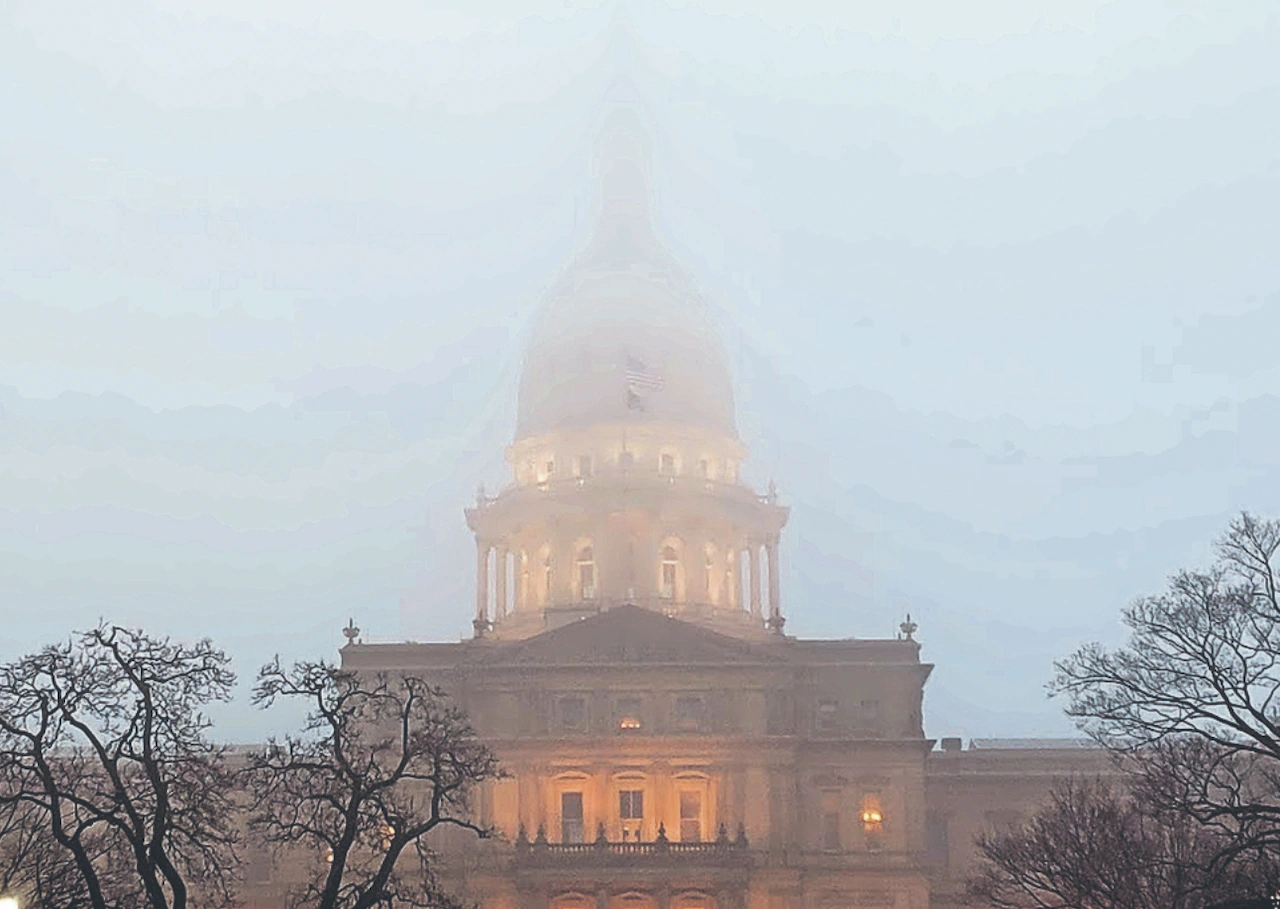
After months of negotiations, Michigan’s divided Legislature has yet to outline a compromise state spending plan that will prevent an impending government shutdown.
The annual process of agreeing on a state budget to allocate dollars for schools, state departments, local governments and more is usually done by July 1, the statutory deadline to pass a budget.
Lawmakers missed that deadline this year amid funding and policy differences, lower revenue projections and disagreements on a long-term funding plan to fix the state’s roads.
While missing the deadline carries no penalty, the state government will shut down on Oct. 1 if lawmakers fail to pass a budget for Gov. Gretchen Whitmer to sign into law by that date. Oct. 1 is the start of the state’s new fiscal year.
It wasn’t immediately clear how close or how far lawmakers are from reaching a deal.
A spokesperson for the Democratic-majority Senate declined to comment. Spokespersons for the Whitmer administration and Republican-majority House did not immediately return a request for comment.
Here’s a look at some of the possible outcomes from the budget standoff:
A government shutdown
The Whitmer administration this week declined to publicly outline what services and operations would cease in the event of a government shutdown.
When the state neared but ultimately avoided a shutdown in 2019, her administration had planned to temporarily cease these services: road construction, welcome centers and rest areas, Secretary of State branch offices, state parks and campgrounds, state harbors and historical sites, state lottery games and state aid payments to local school districts.
A shutdown would also potentially see thousands of state employees temporarily laid off, with unions representing state workers saying these layoffs could bring government services to a crawl.
A shutdown could also harm the state’s credit rating as well as local governments and schools that depend on state payments.
Michigan’s last two state shutdowns in 2007 and 2009 were brief and effectively had no impact, lasting a combined six hours before lawmakers approved funding plans. Those shutdowns came amid budget deficits of more than $1 billion.
Adopting a proposed plan
The least likely option is that lawmakers approve one of the education and government spending plans as proposed by the House, Senate and Whitmer.
Whitmer said this week she would reject the House Republican budget if it came to her desk.
Department heads in her administration this week warned that the Republican plan would undermine government services and operations, as the plan proposes to slash $7.26 billion in departmental spending and cut thousands of state employee positions that Republicans claim are mostly unfilled.
Republicans have said their plan cuts “waste, fraud and abuse” to generate more than $3 billion a year in road funding without raising taxes. They also say their plan is the most balanced budget, as it accounts for lower state revenue estimates and budget deficits caused by President Donald Trump’s tax and spending bill called the “One Big Beautiful Bill Act.”
Broadly, Whitmer and Senate Democrats have proposed spending increases for nearly all state departments and agencies.
Whitmer, too, has proposed a road funding plan to generate around $3 billion in additional road funding each year. That proposal includes raising corporate income taxes and creating a new marijuana tax.
Both chambers, and the governor’s office, have proposed increased spending in their education budgets. However, the House Republican proposal is vastly different from the other plans, as it would increase unrestricted funding to most schools by cutting billions in funding earmarked for student populations or specific programs, like the universal free breakfast and lunches program.
House Republicans argue this approach gives schools more spending freedom, while critics claim it would primarily benefit districts with fewer needs.
The compromise budget
Little is publicly known about what concessions the governor’s office, Senate Democrats and House Republicans are proposing that could be part of a 2025-2026 budget.
What is known, however, is that both Whitmer and House Speaker Matt Hall, R-Richland Township, have stated they won’t accept a state budget that doesn’t include a long-term funding plan to fix the state’s crumbling roads and bridges.
A spokesperson for Senate Majority Leader Winnie Brinks, D-Grand Rapids, declined to comment on what compromises could be part of the budget.
Spokespersons for Hall and the State Budget Office did not immediately return a request for comment.
A continuation budget
One way to avoid the shutdown but delay a compromise on spending priorities, cuts and taxes would be to approve a continuation budget.
That’s what Michigan did to end the brief 2009 shutdown, with lawmakers approving a temporary continuation budget that allowed the state to keep paying its bills and obligations and maintain services.
A full budget was approved later.
The Republican shutdown prevention plan
In March, House Republicans passed a partial, $20 billion budget bill that they said would ensure essential services like prisons, police, schools and local governments are funded in the event of a shutdown.
The plan isn’t meant to be a replacement for a full budget, only a stopgap option in the event of an unavoidable shutdown.
Senate Democrats, which haven’t moved the bill, criticized the spending bill, saying it ignores essential funding needed to keep critical services running for state departments like the Departments of Health and Human Services, Environment, Great Lakes and Energy and Labor and Economic Opportunity.



